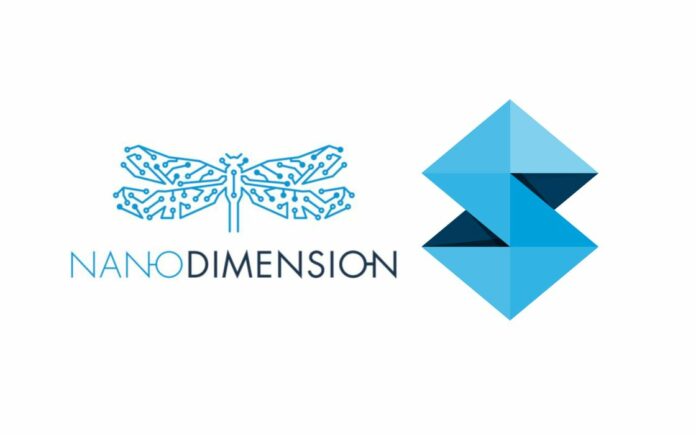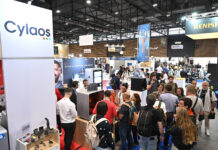On the heels of its recent intent to merge with Desktop Metal, Stratasys’ Board of Directors unanimously determined that the partial tender offer by Nano Dimension Ltd. (“Nano”) to acquire ordinary shares of Stratasys for $18.00 per share in cash substantially undervalues the Company and is NOT in the best interests of Stratasys shareholders.
As a reminder, it’s been a couple of months that Nano Dimension is trying to buy shares of Stratasys.
Accordingly, the Board unanimously recommends that shareholders reject the offer and deliver a Notice of Objection against the offer. Information regarding how to deliver a Notice of Objection can be found at www.NextGenerationAM.com/NanoObjection.
“Due to the strength of our business and the significant upside potential of our pending merger with Desktop Metal, our Board’s position is clear: shareholders should reject Nano’s partial offer and ensure their voices are heard by delivering a Notice of Objection against the offer,” said Dov Ofer, Stratasys’ Chairman of the Board of Directors. “We remain focused on acting in the best interests of Stratasys shareholders and completing our combination with Desktop Metal, despite Nano’s self-interested campaign led by a Board and management team whose legality and authority continue to be in question.”
Reasons for the Stratasys Board’s Recommendation
As further detailed in the Schedule 14D-9, which has been filed with the U.S. Securities and Exchange Commission (“SEC”), and highlighted in the investor presentation released today, the Stratasys Board considered numerous factors in reaching its recommendation that Stratasys shareholders reject Nano’s partial offer and deliver a Notice of Objection against the offer, including the following:
- Nano’s partial offer is inadequate and substantially undervalues Stratasys’ industry-leading position and growth opportunities, which are even larger in light of the pending merger with Desktop Metal. Nano’s $18.00 per share offer reflects a 1.5x CY23E consensus sales multiple2, which is a substantial discount to where Stratasys’ peers trade. Additionally, Nano’s offer does not reflect the full value of the business, especially given the pending merger with Desktop Metal and the fact that Stratasys is moving toward stronger and more profitable growth.
- Nano’s partial offer fails to adequately value the significant value creation expected to result from the Desktop Metal transaction, in particular:
- Growth Opportunities for the Combined Company: The Desktop Metal transaction is expected to establish a uniquely scaled additive manufacturing company that would be one of the largest companies in the industry, targeting $1.1 billion in 2025 revenue. As a result of the transaction, together with Stratasys’ recently expanded offerings, Stratasys’ total addressable market is expected to increase to more than $100 billion by 2032.
- Opportunities for Meaningful Synergies: Significant revenue and cost synergies are expected as a result of the Desktop Metal transaction, including $50 million of revenue synergies by 2025.
- Increased Financial Strength: The combination is expected to create a well-capitalized business with a very attractive financial model:
- Over 50% of revenue from mass production;
- $1.1B of total revenue expected by 2025;
- 45%+ gross margins and 10-12% Adjusted EBITDA margins by 2025; and
- $437 million3 of cash and cash equivalents together as of 1Q 2023.
- Nano’s offer also fails to adequately value Stratasys’ value creation strategy, which represents significantly greater value for shareholders than the value represented by Nano’s offer, in particular:
- Defending the core business: Maintain strong and leading growth within PolyJet and Fused Deposition Modeling (“FDM”);
- Broadening polymer solutions offering: The polymer addressable market is large and expected to grow at a 12% CAGR to $6 billion. Stratasys has introduced three new products since 2020, which will triple the Company’s addressable market, including Digital Light Processing (“DLP”), Stereolithography and Powder Bed Fusion (“PBF”). These expanded offerings are expected to create significant value for shareholders in the near to intermediate term;
- Developing end-to-end manufacturing solutions: Approximately 30% of the Company’s revenue is generated from direct manufacturing today and would be more than 50% pro forma for the merger with Desktop Metal; and
- Evolving go-to market capabilities: Stratasys has a differentiated network of more than 200 exclusive channel partners, providing unparalleled market access across regions and markets.
- Nano’s partial offer fails to adequately value the significant value creation expected to result from the Desktop Metal transaction, in particular:
- Nano’s partial offer is highly opportunistic. Despite previously having proposed an acquisition of Stratasys at $20.05 per share, which the Board rejected, Nano’s partial tender offer only offers shareholders $18.00 per share. The Board views Nano’s attempt to increase its ownership to 53% to 55% of Stratasys’ ordinary shares, and control of Stratasys, in an offer that is $2.05 less per share than Nano was willing to pay to acquire 100% of Stratasys’ ordinary shares as evidence of the manipulative and self-interested nature of the offer, based at least in part on its own ongoing dispute and litigation with its largest shareholders.
- Nano’s campaign is of questionable legal authority and poses significant risks to Stratasys and its shareholders. The composition and legitimacy of Nano’s Board and management team, and consequently, Nano’s authority to make and consummate the partial tender offer, remain subject to adjudication in the Israeli courts, which is currently ongoing. This legal uncertainty poses a significant risk to Stratasys and its shareholders due to the unpredictable potential negative consequences should the Israeli courts determine that the tender offer has been made without the proper authority.
- Nano’s management team has demonstrated a disregard for shareholder value through its history of value-destructive behavior and is ill-equipped to successfully operate a global business at the scale of Stratasys. Nano and its management team do not have a track record of operational excellence and the management team has demonstrated a disregard for shareholder value through its history of value-destructive acquisitions, including DeepCube and NanoFabrica. Nano’s plans for Stratasys could include changes to shareholder rights and even delisting.
- An acquisition by Nano of a majority of the outstanding Stratasys ordinary shares would result in adverse consequences for Stratasys and the remaining shareholders. As a result of Nano becoming a controlling shareholder, Nano would acquire the ability to divert profitable business initiatives away from Stratasys for its own benefit and could enter into related party agreements that benefit Nano at the expense of the public minority shareholders of Stratasys. Furthermore, Nano has demonstrated its disregard for shareholders’ rights by, among other things, failing to disclose the voting results of director elections and changing the classification of directors to avoid facing shareholder votes. Accordingly, the Board believes that the acquisition by Nano of control of Stratasys should not be permitted to occur on the basis of a minority of its public shareholders tendering their shares in Nano’s partial tender offer, which would provide Nano with control without even garnering the support of a majority of the Stratasys shares held by third parties. In addition, under Israeli law, if Nano consummates its offer, it and its affiliates will be prohibited for one year from conducting an additional tender offer for Stratasys shares or merging with Stratasys. Nano will, however, be permitted to acquire up to 90% of the outstanding Stratasys ordinary shares in the open market or through private transactions, such that shareholders who do not tender their shares in Nano’s offer will have significantly reduced opportunities for liquidity following the consummation of Nano’s offer. These restrictions result in Nano’s offer being highly coercive to Stratasys shareholders while allowing Nano to increase its ownership of the Company at market prices and with no control premium.
- Nano’s partial offer is highly conditional and may never be consummated. The numerous conditions set forth in Nano’s offer call into question whether this is an offer capable of acceptance at all, and at the very least create uncertainty and risk as to whether the offer can be completed and the timing for completion, if at all. Stratasys shareholders cannot be assured as to whether, or when, Nano would be able to consummate the offer.
Remember, you can post free of charge job opportunities in the AM Industry on 3D ADEPT Media or look for a job via our job board. Make sure to follow us on our social networks and subscribe to our weekly newsletter : Facebook, Twitter, LinkedIn & Instagram ! If you want to be featured in the next issue of our digital magazine or if you hear a story that needs to be heard, make sure to send it to contact@3dadept.com






